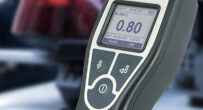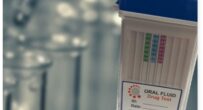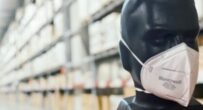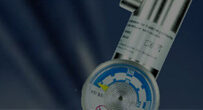Can you say no if your employer wants to drug test you?
Who gets tested?
A growing number of Australians face either random or "for cause" drug testing. People face testing when driving a vehicle, because they're an elite athlete or a prisoner, and increasingly because their employer wants them to be tested. Workplace testing is primarily about safety, which is why those employed in more dangerous industries (think construction, mining, logistics and manufacturing) are more likely to be tested. In addition, those involved in emergency services — such as paramedics and police officers — and those employed in the armed forces also face testing. Under current laws, it appears any employer can insist on drug testing as condition of someone's employment, although most workplaces in Australia don't.
How do tests work?
According to Mal Beacham, managing director at Safe Work Laboratories which carries out workplace tests, there are three main types of testing:
- Urine: workers pee into a cup while being "supervised", but not "observed"
- Oral fluid (saliva): a swab is used to take a sample from the mouth
- Hair: a follicle is plucked from the head and analysed
Using these tests they look for evidence of:
- Cannabis
- Cocaine
- Amphetamines (methamphetamines, speed, ecstasy)
- Benzodiazepines (Valium, Xanax)
- Opiates (heroin, opium, codeine)
The initial tests are usually done onsite at a company's premises. In the case of a urine test, the cup changes colour if there's evidence of an illicit substance. The first level of testing is about discovering a "not negative". If a test comes up as "not negative", the sample is sent for further testing to determine if it is truly a positive test.
Are the tests reliable?
There's the risk of both false positives — where you test positive for something you haven't taken — and false negatives — where you test negative even though you have taken a substance. But there are also other limitations in how the tests work. Cannabis for example can stay in a person's body for up to four weeks after it has been ingested. This means that a person could test positive to the substance even though they weren't impaired by it while at work. Meanwhile, other substances like methamphetamine pass through the body quickly and so are unlikely to be detected if they were ingested more than 24 hours before the test.
Mr Beacham said tests won't accurately measure impairment due to drugs. He described a scenario to illustrate the problem.
"You go on a massive bender taking meth … you don't sleep Friday, Saturday, you sleep three or four hours on Sunday and you come to work on Monday — you won't have any meth in your system because it goes in and out of your body quickly. But are you fit for work?"
Can a test be refused?
David Dilger, an employment and safety lawyer, said any employer could insist on drug testing as a term of employment "as long as it's reasonable". He said the requirement to submit to random drug tests may not be explicitly stated in the wording of an employment contract. "You might see something which will say 'you'll comply with our policies and procedures as lawful and reasonable direction'. You may not see something focused on alcohol and other drugs," he said.
Mr Dilger said if an employee is told a test needs to be conducted — provided it is a lawful and reasonable direction — and they refuse, that person "could be subject to disciplinary action and you could actually lose your job". For some, it is not that they failed a drug test, but that a tribunal or court determined they failed to comply with a reasonable direction which ends up costing them the job, Mr Dilger said. Understanding what you sign up for is key — and "the earlier, the better", he said. "Sometimes it's when you're going for a job, or part of the induction or part of an ongoing training regime." Often, it comes down to the safety of others, he said.
"Now, we're seeing modern alcohol and other drugs policies are more to do with work health and safety, rather than penalising anyone. It's sort of a breach of the worker's own duty, because why wouldn't you participate in a regime set up by the employer to make sure people are safe on the workplace? A mine site would have far more stringent requirements than an admin office … if you're driving a public vehicle, a bus or a taxi, you can't have any alcohol in your system, whereas people who don't drive [a public vehicle] can have up to 0.5 on the roads."
What are peoples' rights if they test positive for drugs in their system but are not work impaired?
"There's usually a differentiation between using urine, which will determine [the presence of] drugs over a longer period, or saliva which just focuses, perhaps, more on immediate impairment," Mr Dilger said, adding "there are levels in Australian standards of what would be infringing and generally most organisations just follow that standard". He cautioned that if the company policy is explicit on the limit and you've exceeded it, "I don't think you have a recourse". "Earlier on, there were arguments and views 'they've just gone too far', but I think modern workplaces are all about impairment and fitness for work."
Sally McManus, the secretary of the Australian Council of Trade Unions, said she had real doubts about the efficacy of drug testing. "The ACTU does not accept that there is a proven connection between increased testing across the board and better workplace health and safety," she said in a statement. "[The ACTU] would oppose any attempt to introduce drug testing as a standard condition of employment in a non-high-risk job."
Source: abc.net.au

 Breathalysers
Breathalysers
 Drug Testing
Drug Testing
 Combo Kits & Safety Products
Combo Kits & Safety Products
 Calibration & Services
Calibration & Services
 Stay Current with Our Latest Training Techniques
Stay Current with Our Latest Training Techniques